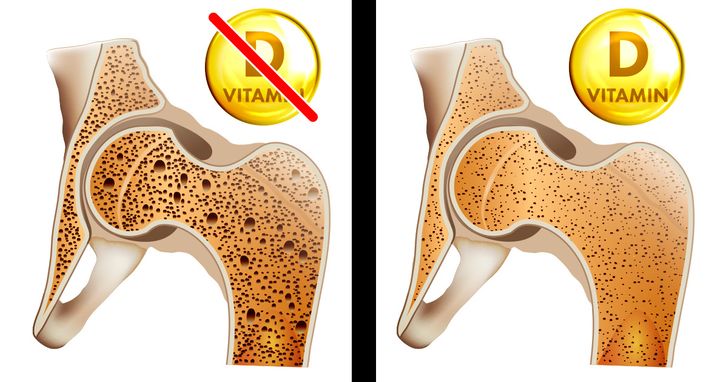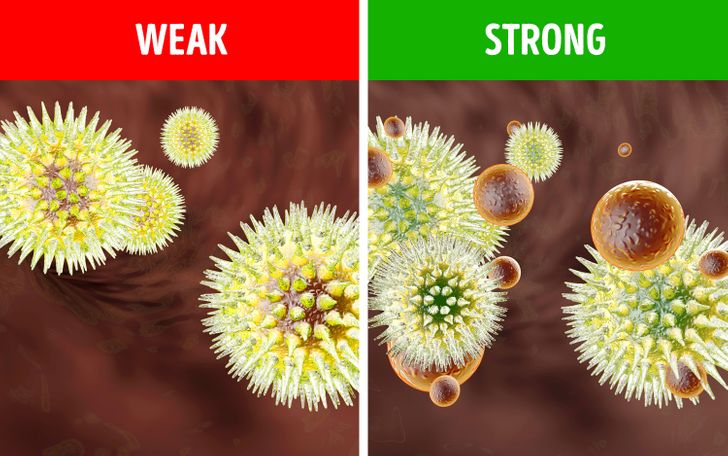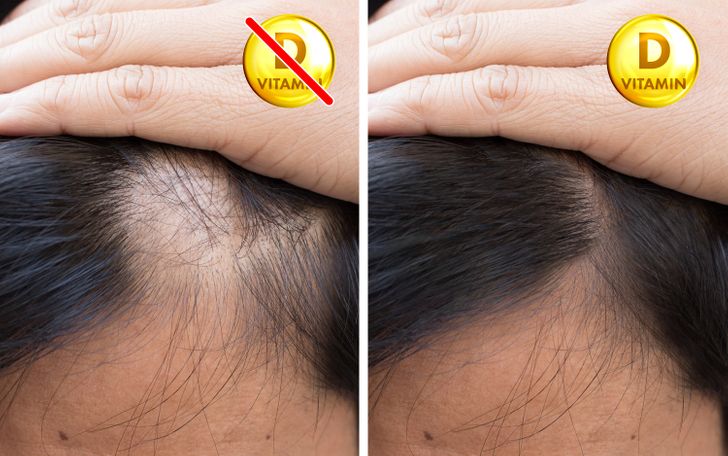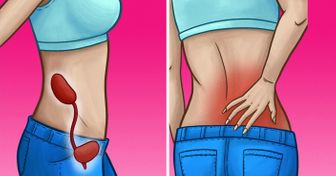8 Signs That Your Body Desperately Needs More Vitamin D
Vitamin D is a fat-soluble vitamin that greatly influences the systems of our body from ensuring calcium supply to our bones to strengthening our immune system. We normally get this vitamin from foods, supplements, and the sun’s rays, but when something goes wrong and we face vitamin D deficiency, our body systems may break.
Here at Bright Side, we’ve studied the most common signs of low vitamin D levels and we want to tell you what we’ve found.
1. Head sweating
There is a variety of symptoms that can indicate your vitamin D level is low. Scientific literature describes excessive sweating in newborns as one of the early signs of the lack of this vitamin. One of the most non-obvious symptoms of vitamin D deficiency in adults is excessive head sweating compared to the rest of the body. If your head sweats a lot this may be related to the lack of vitamin D in your body and you might need to consult your doctor.
2. Bone pain

Lack of vitamin D can impair the body’s ability to put calcium into bone tissue, which can lead to osteomalacia or weakening of the bones. A vitamin D deficiency can be associated with various musculoskeletal pains, in particular, with tibial bone pain and tenderness. It’s recommended to ensure a daily intake of the necessary amount of Vitamin D to avoid bone pain, bone fractures, and related diseases like osteoporosis.
3. Muscle pain
Vitamin D affects not only our bones but our muscles as well. Lack of this vitamin may cause severe muscle pain, weakness, reduced muscle mass and poor muscle recovery after intense physical activity. Low levels of vitamin D can also cause chronic widespread pain in the body, which is one of the main symptoms of fibromyalgia.
4. A weak immune system

Vitamin D plays a huge role in supporting our immune system. Unknowingly, doctors started to use this vitamin to treat infections a long time ago before antibiotics were discovered. Tuberculosis patients, for example, were sent to sanatoriums where they were exposed to sunlight which, as doctors then thought, directly killed the infection. So, if you suffer from frequent viral infections, low vitamin D levels might be the reason.
5. Fatigue and weakness

We often tend to attribute fatigue and tiredness to a busy lifestyle or lack of sleep. It turns out, however, that the lack of vitamin D in the body may also be involved. A study that observed the effect of vitamin D supplementation on patients with fatigue showed significant reduction of fatigue symptoms after the normalization of vitamin D levels.
6. Slow wound healing
A study has shown that 12 weeks of the vitamin D supplementation resulted in a significant reduction of wounds among patients with diabetic foot ulcers. Scientists believe that vitamin D had a positive effect on stabilizing blood glucose and cholesterol levels in the patients under research. If your wounds heal slowly (especially if you have diabetes), pay attention to the level of this vitamin in your body.
7. Hair loss

There are many factors that can trigger hair loss, and vitamin D deficiency is one of them. Lack of this vitamin may lead to an impaired hair cycling process, thinning hair and hair loss. Vitamin D plays an integral part in the hair growth process at the point of the hair’s origination and may be used as a supplement aimed at hair loss treatment.
8. Anxiety and depression

Vitamin D is a unique vitamin that influences many parts of our bodies, including the brain. After the vitamin is consumed by food or synthesized in our skin, it releases neurotransmitters like dopamine and serotonin that influence brain functioning. According to scientists, a lack of vitamin D can lead to anxiety, depression and can even be related to mental illnesses including schizophrenia.
If you have any of the signs of a vitamin D deficiency, plan a visit to your doctor who will evaluate the level of this vitamin in your body and prescribe you the needed dose of vitamin D.
Have you ever experienced any of these symptoms? Do you know your level of vitamin D? Tell us in the comments!
Comments
Which is the best vitamin D corner?
Related Reads
10 Signs That Your Kidneys Aren’t Working Properly

15+ Illustrations From an Artist, Showing That All Women Are Beautiful No Matter What Anyone Else Thinks

Helen Hunt, 60, Stuns During Her Latest Appearance, and Her Lips Become the Center of Attention

People Online Noticed Brad Pitt’s New Partner Is a Spitting Image of Angelina Jolie

Russian Artist Imagines Superheroes Aging and It’s Both Cute and Hilarious

Keanu Reeves Finally Cuts His Long Hair, and His New Look Causes a Stir

Anne Hathaway Deemed Unrecognizable After Her Face Shocked Many in New Pics

Miley Cyrus Raises Eyebrows as She Wears a Naked Dress Made Only of Safety Pins at the 2024 Grammys

“My Face Is Dropping Fast,” A Woman Sold Her HOUSE for Beauty Procedure to Look Younger

Meg Ryan, 62, Is Praised for Finally Looking Her Age As She Stuns in Her Latest Appearance

I Took the Money My Boyfriend Saved Up for an Apartment and Changed Our Relationship Forever

Kim Kardashian Is Trolled for Editing Her Recent Pic, and It’s Taking the Internet by Storm
